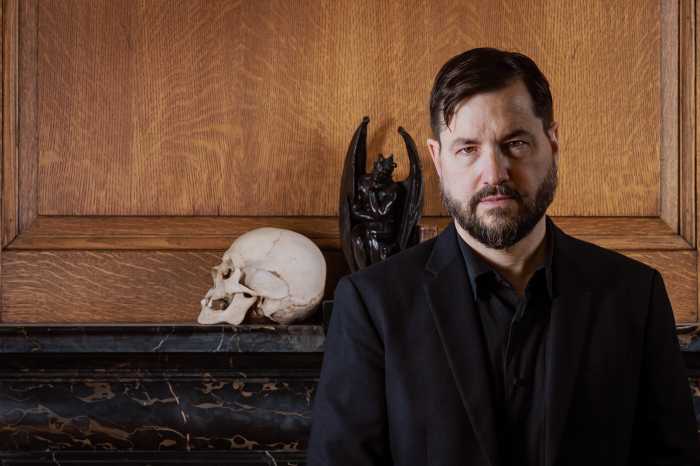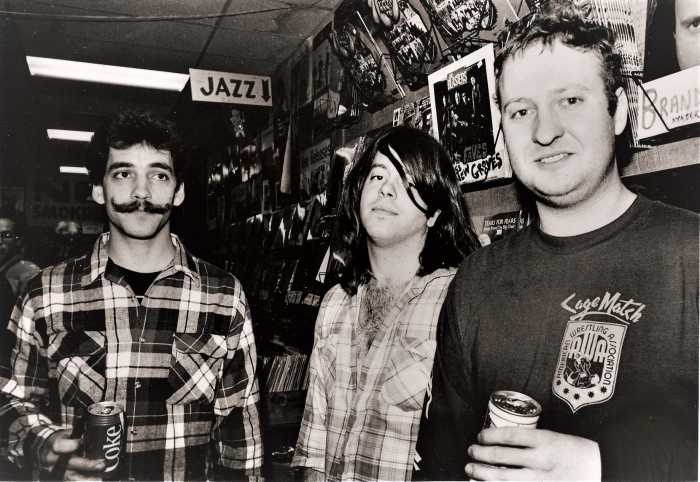Despite being somewhat disjointed and incongruous in its approach, the Public Theater's production of “Hamlet” in Central Park nonetheless proved a satisfying evening. While I would quibble with some of the choices made by director Oskar Eustis, he gets high marks for the clarity of the storytelling and the absolute attention to language and diction that keep this production clear and always comprehensible.
With a cast more than capable of handling this sometimes weighted text and demonstrating an ability to balance Shakespeare's lyricism with the more grand guignol elements of the piece, this “Hamlet” if not definitive is certainly a solid and often gripping telling of a familiar tale.
BASH'D
The Zipper Factory Theater
336 W. 37th St.
Mon., Thu., Sat. 8 p.m.;
Fri. 7:30 & 10 p.m.
$25-$55; 212-352-3101
As to the quibbles, despite the cold, Eastern-bloc style set — beautifully designed by David Korins so that when it opened to reveal the park behind it was breathtaking in its use of nature as a design element — the politics were unclear. Though they both handle the language adroitly, Andre Braugher as Claudius, the usurping uncle, and Margaret Colin as Gertrude, Hamlet's mother now married to Claudius, seem at sea; it's unclear what game they are playing at. That blunts the tension of what is really a revenge tragedy. While Claudius is desperate to get rid of Hamlet, his motivations are largely unclear.
Guys with problems in Public's “Hamlet” and gay rock opera “Bash'd”.
Similarly, David Harbour as Laertes seems almost laid back and blasé at the death of his father but appropriately distraught at the death of his sister Ophelia, who, rejected by Hamlet, turns mad. No question that Harbour is talented, he just needs stronger guidance.
Additionally, the reason Fortinbras has Horatio killed at the last moment comes off more a theatrical trick than something justified by the text. I kept asking myself, since Horatio is one of the last survivors of the bloodbath, wouldn't a savvier Fortinbras have kept him alive for a while to help validate Fortinbras' taking over the throne? Of course, we all know that people in positions of power don't always make rational decisions, and I have to admit the stage blood effect is pretty darn cool.
What works outweighs all of these questions. In particular, Michael Stuhlbarg gives a wonderful performance in the title role. A disaffected and moody teenager, he moves from youthful despair to Machiavellian manipulation. Hamlet's tragedy, though, rests in his rashness, and Stuhlbarg captures that wonderfully. He is a compelling presence on the stage, and negotiates the mood swings with an integrity that delves into Hamlet's psyche without ever being labored.
Lauren Ambrose continues her triumphal march through the Shakespearean ingénues with a performance as Ophelia that is simply exquisite. Her sensitivity and ultimately violent madness always make sense emotionally, though I'm not sure about her wardrobe transformation.
Sam Waterston is an extraordinary Polonius, father to Ophelia and Laertes, clearly a political survivor and a holdover from King Hamlet's reign. Waterston's portrait of age is not the doddering fool Polonius often is, but rather a man who is slowly losing his faculties and always focused on his survival.
Jay O. Sanders is well used in three roles – the Ghost, Gravedigger, and Player King. He is a commanding and versatile performer who conveys authority and the dry comedy that is the last light moment in the script before the tragedies accumulate.
Ann Hould-Ward's modern-dress costumes are splendid, particularly in the use of reds and earth tones and the quasi-military uniforms. Michael Chybowski's lighting makes effective use of different effects that always underscore the emotional tenor of the scenes. Basil Twist designed giant puppets for the play within the play that are extraordinarily effective.
For all its importance in the canon of “great plays,” “Hamlet” needs first and foremost to be entertaining. Eustis and his cast and crew achieve this, making this a worthy production, reinforcing Shakespeare In the Park's standing as one of the quintessential and unforgettable New York experiences.
The “gay rap opera,” “Bash'd” has been lavishly praised in these pages and other media in the US and Canada. But not by me… yet. The show, which has just begun an open-ended run at the Zipper Factory, deserves a place at the top of your must-see list.
It's not merely that it's a creative adaptation of the rap idiom to tell the story of a gay love and a tragedy born out of bigotry and rage. It's not merely wonderfully performed by two white guys completely at home in their adopted rap personas. Nor is it that it is a sensitive piece that balances satire and seriousness, silliness and intelligence. In fact, it is the confluence of all of these factors that makes this show outrageously funny, profoundly touching, and thoroughly entertaining.
If any show could in 75 scant minutes capture so much of the gay experience, this is it. From coming out to dealing with prejudice to gay bashing and revenge, what's remarkable is how much is encapsulated within this show without ever feeling forced or overly politicized.
Written and performed by Chris Craddock and Nathan Cuckow, the show pulses with energy from the beginning. The story, as told by their rap personas, T-Bag and Feminem, respectively, concerns the coming out of Dillon in a small Canadian province, his moving to the big city where he meets Jack, their falling in love and eventual marriage, and the bashing tragedy that pulls their lives apart.
Each of the men gives sensitive, integrated portrayals, while the nearly sung-through score provides plenty of opportunity to show off their significant talents.
This dazzling and original show stands out as an evocation of the gay experience, all its joys and sorrows and it does so with a confidence and commitment that is beyond impressive. Don't miss this.


































